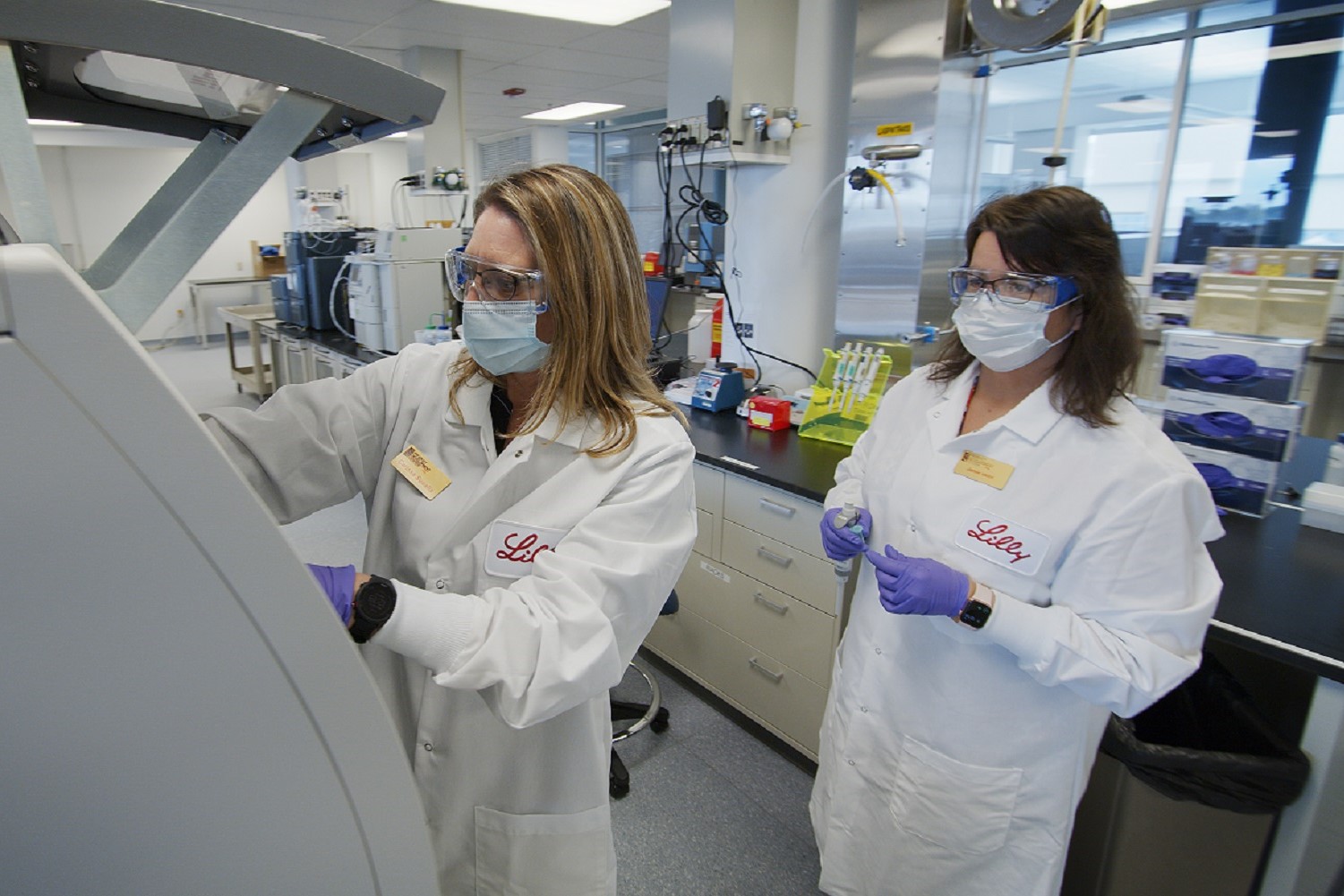
Eli Lilly has additional data from tests of its Covid-29 antibody drug and the results look even better than what was reported from a previous group in the same study.

Consultants: Help Define What’s Next In Healthcare Benefits
Help shape the future of healthcare benefits by sharing your insights.
In the new results released Wednesday, Lilly said that the combination of bamlanivimab and etesevimab reduced Covid-related hospitalizations and deaths in high-risk patients by 87%. In a previous group, the treatment reduced hospitalization and deaths by 70%, results that were used to support the emergency authorization that the FDA granted to the treatment last month.
The Indianapolis-based pharmaceutical giant added that the new results showed the treatment led to statistically significant improvements on the study’s secondary goals, which included measuring a change in the viral load of patients and demonstrating resolutions of symptoms. Lilly said that the viral load reductions were consistent with what was observed in the Phase 3 results released from the previous group in the study.
“The consistent results observed in multiple cohorts of this trial over several months, even as new strains of Covid-19 have emerged, indicate bamlanivimab with etesevimab maintains its effects against a range of variants, particularly those circulating in the U.S,” Daniel Skovronsky, Lilly’s chief scientific officer and president of Lilly Research Laboratories, said in a prepared statement.
Bamlanivimab, from Lilly’s labs, was granted emergency authorization by itself last November as a treatment for mild-to-moderate Covid infection. Lilly’s combination therapy pairs bamlanivimab with etesevimab, an antibody developed by Shanghai-based Junshi Biosciences. Both drugs are neutralizing antibodies, engineered in a lab to stop a pathogen’s ability to cause infection by blocking its ability to bind to and enter cells. Each antibody targets different but overlapping parts of the spike protein that is prominent on the surface of the novel coronavirus. The combination antibody is part of a research partnership that the Lilly and Junshi began last year to develop antibody therapies for Covid infection.

Understanding EGPA: The Role of Eosinophils and Advancements in Treatment Options
FASENRA® (benralizumab) injection, for subcutaneous use, 30 mg is indicated for the treatment of adult patients with eosinophilic granulomatosis with polyangiitis (EGPA). FASENRA provides a treatment option for HCPs to consider when managing this challenging disease.
The new data released Wednesday were from a group of 769 high-risk patients, 12 and older, who had been diagnosed with mild-to-moderate disease. In that group, 511 patients received the intravenously infused therapy while 258 patients were given a placebo. In the new study, the four deaths that were reported occurred in the placebo arm.
In the two Phase 3 groups that have reported data, Lilly said no patients who received the combination therapy have died. In the placebo arm, 13 of the 14 deaths were deemed to be related to Covid infection. Lilly said that the safety profile of the combination therapy was consistent with earlier studies, which reported that the most common side effect was nausea on the day of the infusion.
In addition to its U.S. authorization, the Lilly’s combination antibody is also authorized for use in Europe. Bamlanivimab alone is authorized for emergency use in numerous countries around the world
The FDA has authorized one other antibody combination, a drug from Tarrytown, New York-based Regeneron Pharmaceuticals. Vir Biotechnology and partner GlaxoSmithKline have a Covid antibody therapy in pivotal testing. The future of that antibody is unclear after an independent analysis last week recommended that trial enrollment be closed because the available data raise concerns about the drug’s potential benefit. Brii Biosciences reported last week that its antibody drug failed its Phase 3 test.
Photo by Eli Lilly






